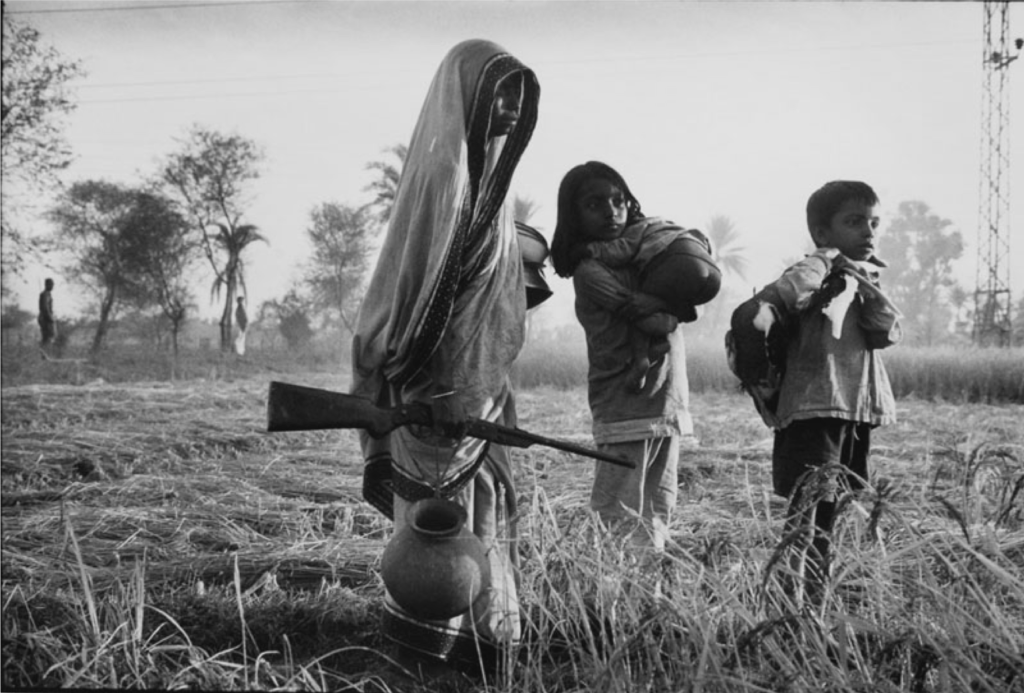Originally published in New Age
By Shahidul Alam
Joy Bangla in those days had not been commandeered by any political party. It was a slogan we all used. Some took it more to heart than others. I was on a rickshaw heading towards mejo chachi’s house, (she is mother of my footballer cousin Kazi Salahuddin, better known by his nickname Turjo). Seeing a friend on the road I shouted out Joy Bangla. Joy Bangla, he waved back. At mejo chachi’s the rickshawala refused to take my fare. “Joy Bangla bolsen na. apnar thon bhara loi kemne” (You said Joy Bangla. How can I take fare from you?). Despite my insistence he wouldn’t budge. The rallying cry belonged to us all. He saw me as a fellow warrior.
On the 16th December, I had gone into a burning military convoy opposite Sakura hotel and took a partially charred Browning light machine gun as a trophy. Almost at the same site where I had seen, nine months ago, people being gunned down as they ran from the flames on the night of the 25th March. They lived in the slums near the Holiday office. Their brutal death part of a statistical count we still argue about.
Years later, I tried to put together a visual chronicle of the war. Collecting photographs from great photographers from far away lands and many local ones who had witnessed our pain, and shared our victory. There were moments of great bravery and greater sacrifice. There were moments of immense pain. The weight of great loss. Rashid Talukder’s image of the dismembered head in Rayerbazar was one of the most striking. Kishor Parekh?s sculpted frames showing, dignity, honour, elation and loss. Raghu Rai?s monumental images of seas of people seeking shelter. Captain Beg’s rare photographs of the mukti bahini during battle. Mohammad Shafi?s striking image of women smuggling grenades in half-submerged baskets. Aftab Ahmed’s image of the final surrender, stoic and significant.

The image that stood out from all the others however, was by Penny Tweedie. Freelancing and without an assignment, Penny had neither the luxury of a client?s budget, nor the assurance of a publishing slot. She did the best she could, getting lifts from fellow photographers, flitting between areas of conflict and stress, she stayed close to ordinary people. People like my rickshawala friend, or the people I saw dying on the night of the 25th March. People who resisted, people who fled, people who sheltered others. People who fed people when they had little food themselves. The image of a woman, carrying a gun walking through a paddy field, with children in tow, was for me the image that encapsulated the war. These were ordinary people who had war thrust upon them. They made do, as best as they could. Bearing their pain with dignity. Fighting with no hope for return. Unlike me, they were not trophy hunters. I doubt if that woman ever made it to a muktijoddha list. I have no way of knowing if she, or her children made it through the war alive. They gave us this nation where we had all hoped we would be free.
